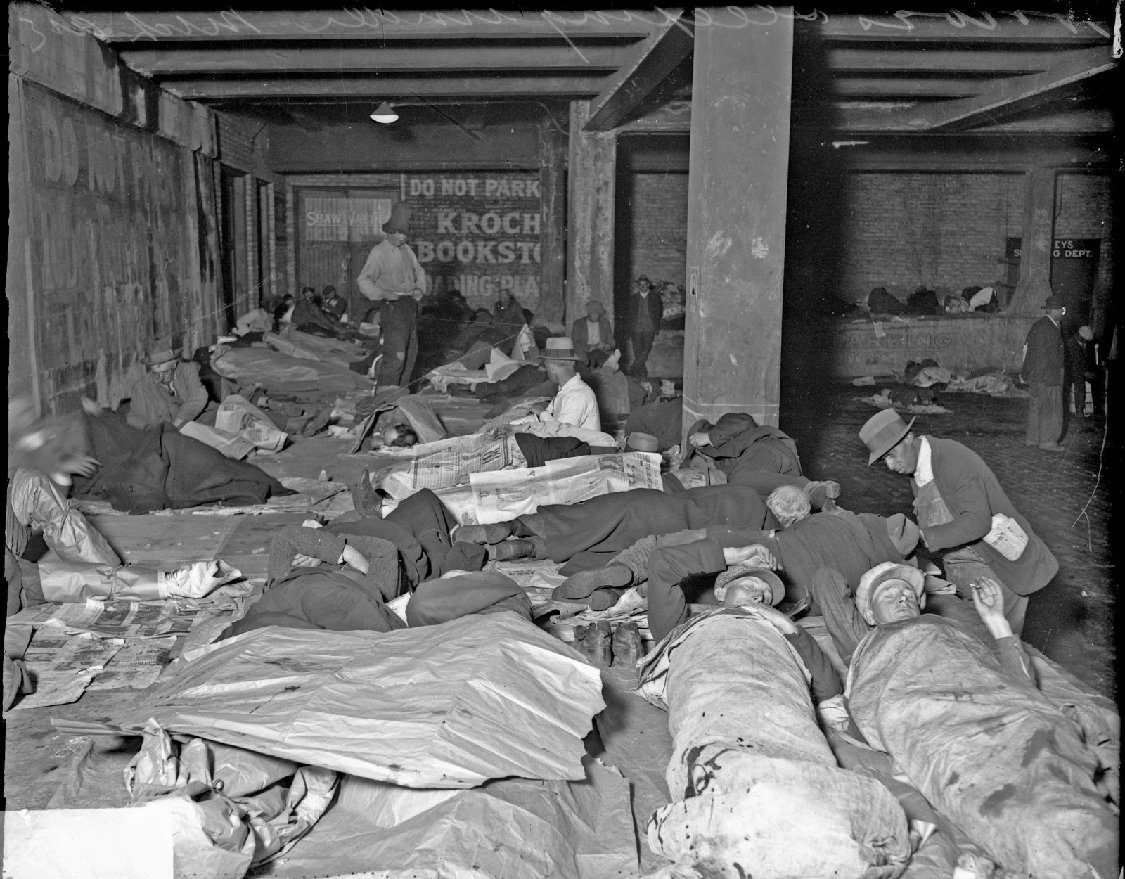 PRIMARY SOURCE TYPE: DOCUMENTS, ORAL HISTORIES
PRIMARY SOURCE TYPE: DOCUMENTS, ORAL HISTORIES
During the Great Depression approximately 25 percent of working Americans lost their jobs, but how did this really affect the people who lived through those years, and how do our times relate to their experiences?
In this unit, students will study the causes and effects of the Depression through the reflections of those who lived in America at that time. Students will explore both primary and secondary sources, largely from Studs Terkel’s Hard Times, and prepare oral and written analyses of the Great Depression. Students will learn the value of primary research and develop their skills as critical thinkers, interviewers, and debaters.
Lesson 1: How Hard Were the Times?
Investigating the Meaning and Significance of the Great Depression
Understanding the Great Depression through statistics can be difficult. This lesson uses Studs Terkel’s interview transcripts for his book Hard Times to create a broader picture of daily life during the Great Depression. During this lesson, students will research life in the 1930s, study Studs Terkel’s interview transcripts, practice their interviewing skills and put them to use, analyze the value of verbal information, use acquired knowledge to assess the past, and apply that knowledge to the present. Download How Hard Were the Times?
Lesson 2: To Understand the Times is to Understand the People
Who was the “average person” of the Depression Era? What is the particular value of information obtained through an interview? What qualities make a good interviewer? This lesson is designed to help students understand how “real” people lived and worked during the Great Depression. It will provide students with basic interviewing skills and enhance their listening, note taking, and reporting skills. Download To Understand the Times is to Understand the People.
Lesson 3: Who Makes History?
Distinguishing between Those Who Live Through History and Those Who Write About It
Who are history’s reporters? How do we interpret and collect primary source material, such as oral history interviews? Uncovering history requires us to use skills of research, evaluation, and analysis. During this lesson, students will develop an analytical perspective of how historians record, preserve, and interpret data by analyzing both original and edited transcripts from Studs Terkel’s interviews for his book Hard Times. Download Who Makes History?
Lesson 4: Whose History is it Anyway? Patterns in History
Do historic patterns repeat themselves today? Using evidence from primary sources, students will debate positions concerning the lessons of Depression-era history. This lesson helps students consider history both as a reflection of the past and a part of current events, gives them formal debate experience, and encourages respect of opposing views. Download Whose History is it Anyway?